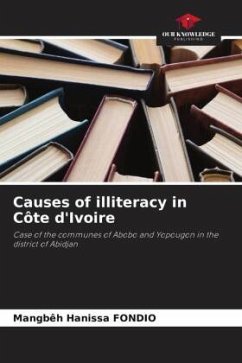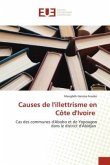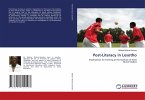As we approach the end of the 2030 Agenda and the assessment of the MDGs, the achievement of MDG 4 is far from being effective (UIS 2019), and the problems of illiteracy remain preponderant at the moment. It is necessary to reinforce actions in favor of literacy. Our study "Causes of illiteracy in Côte d'Ivoire: the case of the communes of Abobo and Yopougon in the district of Abidjan" contributes to the actions and enriches the documentation on illiteracy in Côte d'Ivoire in order to improve efforts in favor of literacy and to promote the achievement of the MDG 4. Our research work revolved around the following question: Why do neo-literates become illiterate?To answer this question, we put forward the general hypothesis that neo-literates become illiterate due to a lack of use of their knowledge. The objectives of our study are: to determine the environmental factors that cause illiteracy among neo-literates, to identify the action of post-literacy on illiteracy among neo-literates, and to situate the action of neo-literates in the conservation of their knowledge.
Bitte wählen Sie Ihr Anliegen aus.
Rechnungen
Retourenschein anfordern
Bestellstatus
Storno








